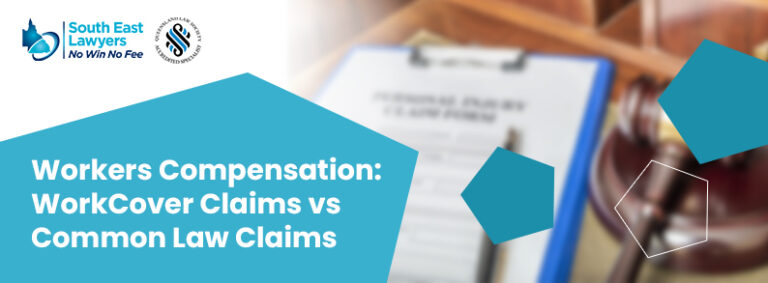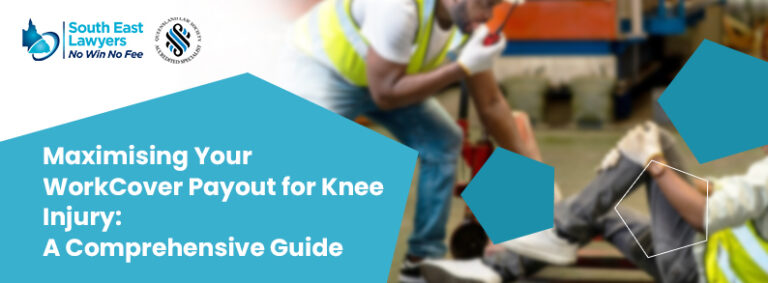In Queensland, WorkCover provides crucial financial support to employees who have been injured on the job, ensuring they continue to receive an income as they recover.
While the goal for many is to heal and return to their previous role, complications in the recovery process or challenges in the compensation journey can lead some to consider leaving their job.
If you’re in this position, contemplating a job change while under the protection of WorkCover, it’s important to understand the implications. Transitioning to a new job while receiving WorkCover benefits is possible, but it comes with specific responsibilities towards your current employer and WorkCover Queensland itself.
Here’s what you need to know to navigate this complex situation.
Can an Injured Worker Pursue a New Job While Receiving Workers Compensation Benefits?
Yes, if you’re an injured worker currently benefiting from workers compensation due to a work-related injury, you have the option to resign and embark on a new employment opportunity.
It’s crucial, however, to involve your treating doctor in the decision-making process. Especially for those who have been off work and are navigating the complexities of workers compensation law, discussing your plans to change jobs with your medical professional is vital. They can provide essential guidance on managing your medical treatment and recovery, ensuring a smooth transition back into the workforce, potentially with a new employer.
This careful consideration helps safeguard your rights and ensures that your move to another job doesn’t negatively affect your entitlement to workers compensation benefits, including weekly payments and coverage for medical expenses.
What Happens to Your WorkCover Benefits When You Start a New Job?
Changing jobs while on WorkCover might raise questions about how your weekly benefits and medical expenses will be impacted. The good news is your entitlement to cover medical and rehabilitation costs remains unaffected by a change in employment. However, the situation with your weekly payments could change.
WorkCover takes several factors into account before making a decision:
- Your ability to perform work tasks;
- How your new salary compares to your previous earnings;
- The circumstances around leaving your former position;
- And whether your new role aligns with your recovery and medical restrictions.
For injured workers, it’s crucial to continue providing up-to-date medical certificates that detail any work restrictions, including hours and specific tasks. If your new position demands more than your current medical advice allows, it could influence your workers’ compensation benefits.
Consulting with a workers injury lawyer is recommended to navigate these changes and ensure your rights and benefits are fully protected in your new employment scenario.
What Are Your Responsibilities to WorkCover When You Switch Jobs?
If you transition to a new role while receiving workers compensation payments, it is imperative to notify WorkCover Queensland of this change in employment status. Furthermore, as long as your workers compensation claim remains active, you are required to disclose any additional employment, including all sources of income, as well as any unpaid or voluntary work you engage in.
Failure to disclose such information while receiving workers compensation benefits constitutes a breach of your obligations and may result in penalties. It is crucial to maintain transparency with WorkCover Queensland to ensure compliance with the conditions of your workers compensation claim.
Do I Need to Tell My New Employer About My Pre-existing Injuries?
When starting a new job, the question of whether to disclose a pre-existing injury to your employer is important. The key factor in this decision is whether the injury might impact your capacity to fulfill the expected duties of your position. Disclosure is necessary if your injury could influence your performance or if you need specific accommodations to perform your job effectively without worsening your condition.
It’s essential to consider the implications of your injury on your work and communicate any necessary adjustments. This ensures both your well-being and your ability to contribute productively to your new workplace.
Is it lawful for an employer to terminate an employee on WorkCover payments?
Within the initial 12 months following a work-related injury, employers are generally restricted from dismissing an injured employee. However, if there’s a genuine need for redundancy, termination is permissible even within this period, provided that it adheres to legal requirements for notice or payment in lieu of notice, alongside any applicable redundancy pay and entitlements like accrued leave.
Beyond this 12-month protective window, the ability of employers to terminate the employment of those on compensation expands, potentially affecting their WorkCover benefits. Importantly, for those unable to return to their usual duties after two years due to significant impairment, WorkCover continues to offer financial support based on their recovery and capacity.
This framework aims to balance the rights of injured workers with the needs of employers, ensuring a fair approach to employment termination and ongoing support for those on WorkCover, including in cases of redundancy. Learn more about this here.
Got Questions About Your WorkCover Claims?
It’s not uncommon for employees to explore new job opportunities while receiving WorkCover payments.
Should you need guidance on resigning from your current position, understanding your responsibilities under WorkCover, or how to make a workers’ compensation claims, our dedicated work injury lawyers at South East Injury Lawyers in Queensland are here to help. With expertise in WorkCover claims, we’re committed to ensuring you’re fully informed and supported every step of the way.






